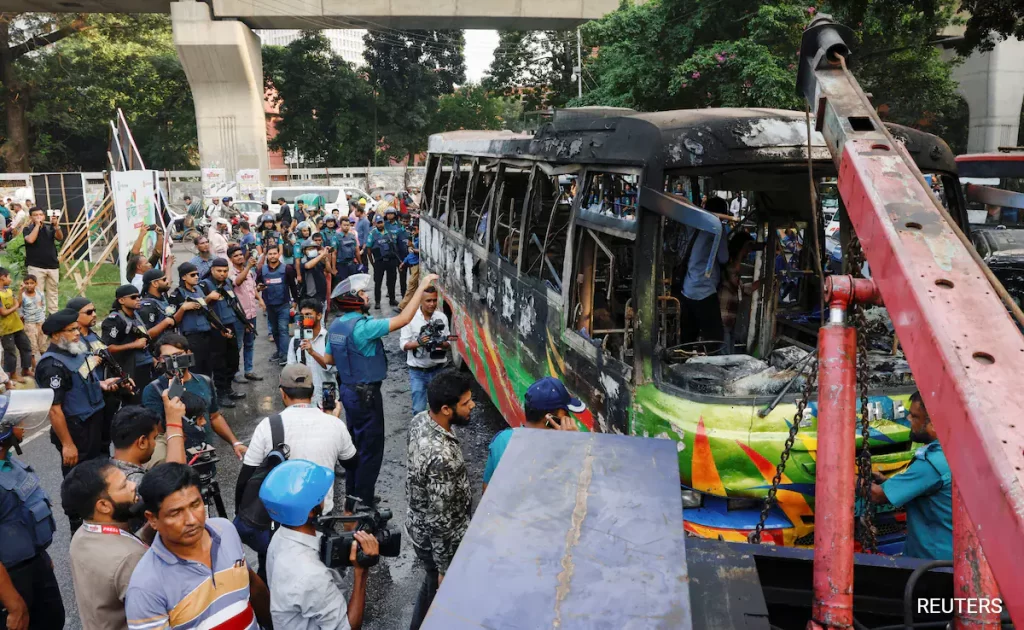Two opposition activists in Bangladesh were slain Tuesday as police battled with hundreds of anti-government protestors who launched a three-day strike blocking highways and trains after their senior leaders were charged with murder.
According to police, violence erupted in a number of cities and towns as supporters of the Bangladesh Nationalist Party (BNP) and Jamaat-e-Islami, the country’s largest Islamist party, demanded that Prime Minister Sheikh Hasina stand down ahead of elections scheduled for the end of January.
Al Amin, deputy police commander in Kuliarchar, north of Dhaka, claimed two BNP members were slain, although specifics on how they died were unclear.
BNP official Shariful Alam said they two were “shot dead by the police” during a rally with more than 2,000 protesters.
“Police came and opened fire — one BNP activist died on the spot and another at a hospital,” he said, adding that “more than 100 were injured”.
Protesters set fire to buses and clashed with security forces, hurling petrol bombs and pelting officers with rocks, police said.
“They hurled Molotov cocktails and attacked and vandalised transport vehicles,” police officer Mominul Islam said, adding at least 15 officers were injured.
“Police fired rubber bullets and tear gas to disperse the protesters.”
The BNP said it launched its transport blockade after police broke up a rally on Saturday, when more than 100,000 supporters of the two major opposition parties demanded Hasina allow a free and fair vote under a neutral government.
On Sunday, police charged BNP leader Mirza Fakhrul Islam Alamgir and more than 150 other top party members with the murder of a policeman during the demonstrations.
The violence has sparked international concern, with seven nations including the United States, Australia, Britain, Canada and Japan urging “exercise restraint, eschew violence and work together” for a free and fair vote.
Alamgir, 75, the BNP’s secretary-general, has led the party since BNP chairwoman and two-time former premier Khaleda Zia was arrested and jailed, and her son went into exile in Britain.
The resurgent opposition has been mounting protests against Hasina for months, despite ailing leader Zia being effectively under house arrest since her release from prison after a conviction on corruption charges.
Dhaka police said they have arrested at least 1,727 opposition activists and supporters over the last week. At least 1,544 opposition activists and leaders were also charged with violence on Saturday, police said.

